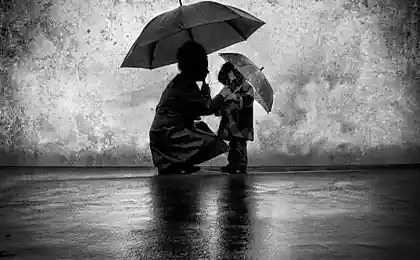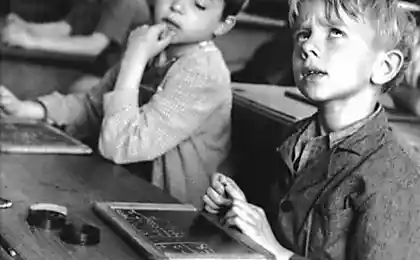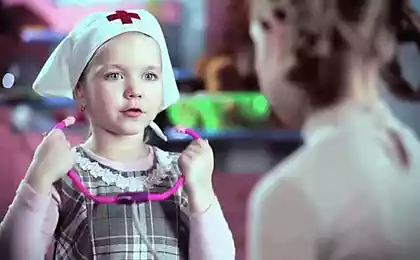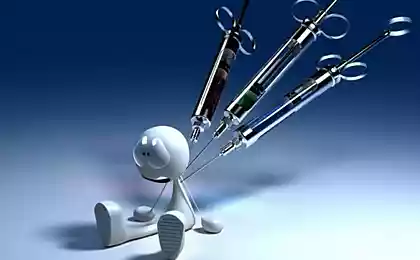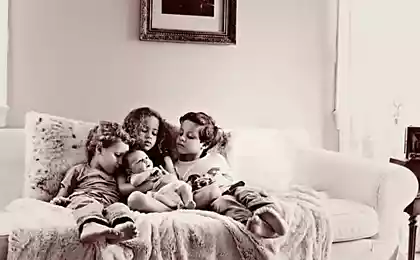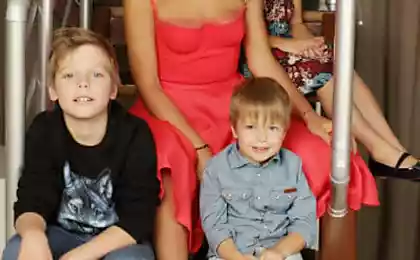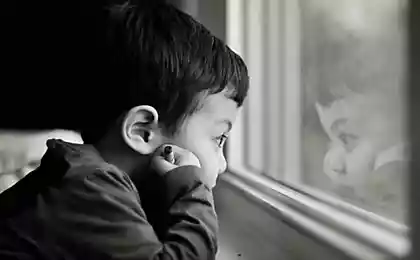436
Gordon Neufeld: do Not miss their children
Sixty one million two hundred sixty eight thousand one hundred seventy three
Nothing has on the child such an effect, as the collision with the separation from those to whom he is tied.
The division with which it is faced, can be physical, emotional or psychological. When children do not get to keep in touch with their main attachment, hormones are released from the stress and Wake up strong emotions designed to try to solve the problem of separation.
Anxiety tries to awaken the child's care.
A sense of commitment to the area gives impetus to “close the gap” distance that he feels.
Frustrations encourages the child to make the change. If these emotions can not solve the problem, the brain builds up protection from the unbearable separation.
Primal defense – an escape from the vulnerability, the result of which is loss of tender feelings. Some children become more dominant, because the dominant position is less vulnerable than dependent. Often a reaction to too frequent division is a transfer of attachment to other people or objects. Orientation to peers is one of the most destructive phenomena of attachment in our days, which is the subject of my book “don't lose their children.” I briefly described this phenomenon earlier in this report.
Separating the complex formed as a result, is the basis of most of the manifestations of undesirable behavior in children. The difficulty lies in the fact that even in the most highly developed contemporary societies, children are faced with split more than ever before, which leads to the buildup of these common childhood problems.
Aggression and suicide among children has been steadily growing over the past fifty years. Issues stemming from anxiety, such as anxiety, excitement and thrill seeking, become ordinary among children. Grow the dependencies associated with the pursuit of proximity, such as, for example, virtual communication. If these problems are the indicators of children's well-being, we are not progressing. Sadly, we step back. To reverse this trend, we must support the attachment of children to responsible adults.
To summarize: for their own welfare and the welfare of society children should be deeply attached to a responsible adult. It is necessary for them to obtain the nourishment necessary for true growth and maturation. They need to prevent them harming shyness and neutralize instinctive resistance. They need this if they want to be good. They need to reduce the separation they are facing. Like plants, children can never be too attached. Like plants, our children can be tied too superficial or too unreliable. The solution to development problems – always in the adding attachment, and not in its reduction. This is true even for teenagers.
The deeper the attachment, the more space for identity, individuality and independence. Only superficial levels of affection in conflict with the development of individuality. published
An excerpt from the new booklet Gordon Neufeld “the keys to the well-being of children and adolescents.”
Translation Irina Was Odnevall
P. S. And remember, just changing our mind, we together change the world! ©
Source: alpha-parenting.ru
Nothing has on the child such an effect, as the collision with the separation from those to whom he is tied.
The division with which it is faced, can be physical, emotional or psychological. When children do not get to keep in touch with their main attachment, hormones are released from the stress and Wake up strong emotions designed to try to solve the problem of separation.
Anxiety tries to awaken the child's care.
A sense of commitment to the area gives impetus to “close the gap” distance that he feels.
Frustrations encourages the child to make the change. If these emotions can not solve the problem, the brain builds up protection from the unbearable separation.
Primal defense – an escape from the vulnerability, the result of which is loss of tender feelings. Some children become more dominant, because the dominant position is less vulnerable than dependent. Often a reaction to too frequent division is a transfer of attachment to other people or objects. Orientation to peers is one of the most destructive phenomena of attachment in our days, which is the subject of my book “don't lose their children.” I briefly described this phenomenon earlier in this report.
Separating the complex formed as a result, is the basis of most of the manifestations of undesirable behavior in children. The difficulty lies in the fact that even in the most highly developed contemporary societies, children are faced with split more than ever before, which leads to the buildup of these common childhood problems.
Aggression and suicide among children has been steadily growing over the past fifty years. Issues stemming from anxiety, such as anxiety, excitement and thrill seeking, become ordinary among children. Grow the dependencies associated with the pursuit of proximity, such as, for example, virtual communication. If these problems are the indicators of children's well-being, we are not progressing. Sadly, we step back. To reverse this trend, we must support the attachment of children to responsible adults.
To summarize: for their own welfare and the welfare of society children should be deeply attached to a responsible adult. It is necessary for them to obtain the nourishment necessary for true growth and maturation. They need to prevent them harming shyness and neutralize instinctive resistance. They need this if they want to be good. They need to reduce the separation they are facing. Like plants, children can never be too attached. Like plants, our children can be tied too superficial or too unreliable. The solution to development problems – always in the adding attachment, and not in its reduction. This is true even for teenagers.
The deeper the attachment, the more space for identity, individuality and independence. Only superficial levels of affection in conflict with the development of individuality. published
An excerpt from the new booklet Gordon Neufeld “the keys to the well-being of children and adolescents.”
Translation Irina Was Odnevall
P. S. And remember, just changing our mind, we together change the world! ©
Source: alpha-parenting.ru
Don't waste your time and energy on those who care about You
3 recipe healthy drinks to speed up metabolism

